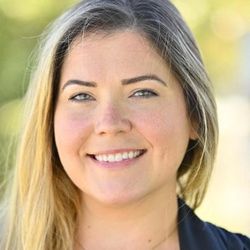How Can I Ease My Fears About Dental Care Without Medication?
When you visit our dental office, we can discuss ways that you can prevent experiencing anxiety while receiving dental care. Give us a call to go over any and all methods for dealing with dental anxiety that we can offer. In some cases, all a patient needs to do is play music on headphones during the appointment. In other cases, we may need medication or another method to deal with dental anxiety.
How Can I Prepare for My Dental Appointment?
Another easy way to calm your fears is to visit our Santa Clara dental office and meet with Dr. Pak prior to the actual appointment. Taking the time to tour our office, where you can sit in the dental chair and have a conversation, will allow you to become familiar with our staff and office environment.
After this meeting, when you do have your teeth cleaned or treated, you are doing so in an atmosphere that you feel comfortable in with friendly and familiar faces. During your consultation, we can also discuss what you can expect from a teeth cleaning or a specific procedure. This will help you to mentally prepare for how long it will take, what dental tools we will use, what you may feel during the process, and what the recovery period will be, if any.
At Well Being Dentistry, we find that the more informed our patients are, the more comfortable and relaxed they feel. This one appointment can help to alleviate the fear of dentists that you are experiencing.
Check out what others are saying about our dental anxiety support services on Yelp: Dental Anxiety Santa Clara
Santa Clara Dental Anxiety
Sedation Dentistry Can Reduce Your Dental Anxiety
In our Santa Clara dental office, we practice sedation dentistry that can be used to reduce and prevent dental anxiety. Here are some of the questions we regularly answer about sedation dentistry:
Will I Be Asleep When Sedated?
Typically, not. Sleep dentistry is usually reserved for oral surgery and lengthy procedures. Sedation dentistry will help you relax and can make you drowsy, so some patients do nod off. However, with our sedation methods, you are still in control of your body and are technically not put to sleep.
Can Everyone Use Sedation Dentistry?
To determine if you are healthy enough for sedation (most people are), we recommend that you schedule an appointment with our California dental office. We will meet with you to discuss the type of sedation that will be best for your procedure and the level of dental anxiety that you are experiencing.
How Is Sedation Dentistry Administered?
The most common form of sedation is taking a pill an hour before the procedure begins. One pill can help you to feel entirely relaxed and eliminate your fear of dentists. Most procedures, like teeth cleaning or fixing a simple cavity, do not necessarily hurt. With sedation, many people do not require additional medication. However, if you would like pain medication as well, we can give it to you after the sedation has taken effect.
Will I Be Able to Move Around Like Normal?
Yes, with sedation dentistry you can continue to engage in conversation and respond to commands, but your response times may be slightly delayed and your mind not as clear as normal. This is why we recommend that you either have someone drive you home or wait until it has worn off completely before driving home after the appointment.
Are There Any Side Effects of Sedation Dentistry?
Most of the time, the effects of sedation go away within an hour of your procedure being complete. If you are more heavily sedated or put to sleep for oral surgery, it can take a couple of hours to feel normal, but this is rare. In our Santa Clara dental office, we use the least amount of sedation to help you to feel completely relaxed and comfortable. Thus, it is effective without staying in your system for too long.
Can Children Benefit From Sedation Dentistry?
Yes, children may need sedation when going through extensive dental work so that they can hold still long enough for a dentist to complete the dental work. This is a unique specialty that is not offered at every dental office.
Are There Other Ways to Make Dental Work More Comfortable?
Yes. Laser dentistry is transforming how professionals complete dental procedures. When you visit our dental office, you can be confident that we will use the latest technology available to make your procedure more comfortable. Lasers allow us to do so because the laser energy is precise and can target small spaces without irritating the surrounding tissue.
We can also reduce discomfort and recovery times thanks to dental lasers. Dental lasers are also less invasive than traditional dental tools. With the dental laser, there will be less bleeding and swelling than normal. Dental lasers can also help treat tooth decay and gum disease and have applications in restorative procedures.
If you want a more comfortable experience and to reduce your dental anxiety, we highly recommend visiting a laser dentistry office. To learn about the procedures that we perform using lasers, call (408) 244-0590 (408) 244-0590 and schedule an appointment.
At Well Being Dentistry, we find that many of our patients no longer need sedation or pain medication because the common factors that create fear of dentists are eliminated. For example, the noise, heat, and vibration that are traditionally associated with dental drills are not present when using lasers.
To learn more about sedation dentistry, new dental technology, or how to reduce your dental anxiety, call and schedule an appointment with our Santa Clara dentist today.
To learn more about sedation dentistry, new dental technology or how to reduce your dental anxiety, call and schedule an appointment with our Santa Clara dentist office today.
Questions Answered on This Page
Q. How can I prepare for my dentist appointment?
Q. Can I be asleep during the treatment?
Q. Are there any side effects of sedation dentistry?
People Also Ask
Q. Will reading reviews help me find a great dentist?
Definition of Dental Terminology
- Cosmetic Dentistry
- Cosmetic dentistry is a term generally used to refer to any dental work that improves the appearance (though not necessarily the function) of a person’s teeth, gums, and/or bite.
- Decay
- Tooth decay is when the enamel of the tooth begins to decay and cause erosion from plaque and tartar on the teeth.
- Dental Caries
- Dental caries are also known as cavities and result from a lack of proper oral hygiene leaving plaque that forms tiny holes in the teeth.
- Dental Checkup
- A dental checkup is an appointment that involves cleaning the teeth, identifying any signs of infection or dental issues, and addressing said signs of infection or dental issues. It is performed at least once every six months in the dental office.
- Dental Filling
- A dental filling involves restoring the structure of the tooth by using different filling materials to fill the tooth.
- Dental Prophylaxis
- Dental prophylaxis is a professional and detailed cleaning that involves the removal of plaque, calculus, and stains from the teeth.
- Dental Sealants
- Dental sealants are a resinous material that we apply to the chewing surfaces of the posterior teeth to prevent dental caries.
- Dentist
- A dentist is a doctor who specializes in the diagnosis, prevention, and treatment of diseases and conditions of the oral cavity.
- Gingivitis
- Gingivitis is the inflammation of gum tissue that results from plaque, other infections in the mouth, and poor oral hygiene.
- Preventive Dentistry
- Preventive dentistry focuses on maintaining oral health by preventing the formation of plaque and tartar and the development of issues like cavities, gum disease, and infections in the mouth.
- Tartar
- Tartar forms when plaque builds up on the surface of the teeth and calcifies into a hard surface that is much more difficult to remove and will require professional treatment.
- Tooth Enamel
- Tooth enamel is the protective visible outer surface of a tooth that covers the dentin and dental pulp.



